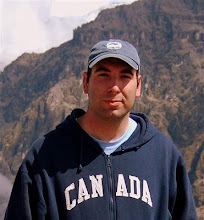By Jeff Meredith
Tribune staff reporter
June 11, 2011
Flower petals collected at the feet of Jane Bohman this morning, plucked and dropped to the ground as the names of the 168 victims of the Oklahoma City bombing were read to some 30 to 40 onlookers in the Kluczynski Federal Building Plaza in downtown Chicago.
Bohman, program director for the Illinois Coalition Against the Death Penalty, then addressed fellow protesters who had gathered to remember those lost in the 1995 bombing, and the 164 people now on Illinois' Death Row. A state moratorium, declared by Gov. George Ryan on January 31, 2000, currently prevents Illinois from staging executions.
"These 168 people are victims of a culture of violence, where (Timothy) McVeigh thought that violence was the language," Bohman said. "The execution of Tim McVeigh is not going to bring back any of the victims of Oklahoma City. It creates only more violence in a society that certainly could do without more killing, more suffering."
Timed to correspond with the 7 a.m. executive of McVeigh, the first person put to death by the federal government since the 1963 hanging of Victor Feguer, a convicted kidnapper and murderer, clergy members led a Mass for the Dead on the plaza.
Bishop James Wilkowski, bishop for the Diocese of the Northwest of the Independent Evangelical Catholic Church, began his prayer vigil at 5 a.m., protesting the McVeigh execution and all executions to follow.
"We are absolutely, unconditionally opposed to the death penalty," Wilkowski said. "And we believe that the pastoral community has an obligation to help right what's becoming a broken moral compass."
Approaching McVeigh's execution, Rev. Bill Leaming, of the Church of the Holy Family, Chicago, admitted there was "a human part of me that would've loved to do it myself." But Leaming, having just removed the white stole he wore for the mass, reaffirmed his belief in the Ten Commandments' "Thou Shalt Not Kill."
"Simply putting another name on an event in an attempt to minimize the impact or to change its meaning by calling it an 'execution' doesn't diminish (that) it is in fact murder," Leaming said. "It's premeditated murder. Our government spent (years) planning this execution. I see no distinction whatsoever between that act and the act (McVeigh) carried out."
Passersby who witnessed the protest did not hesitate to voice disagreement.
"What value does it serve society not punishing (McVeigh) with the ultimate punishment?" asked Keith Miller, a senior engineer with a Chicago power plant engineering firm. "To keep him around and let him become an icon or someone to be spoken to? Twenty years from now, I don't want to hear reporters going to interview McVeigh in jail."
Death penalty opponents conceded that McVeigh was not typical of Death Row inmates. Convicted of the largest single act of domestic terrorism in U.s. history, it would be difficult finding much sympathy for him, they said.
The protesters called for improved legal representation and access to DNA testing for Death Row inmates, and criticized the disproportionate number of minorities sentenced to death in this country -- factors that were not at issue in the McVeigh case.
Citing what he called a "government-orchestrated ... 'Hate Timothy McVeigh'" campaign, Robert Schultz, death penalty program coordinator for Amnesty International USA's Midwest Regional Office, said, "Ironically, some of the victims have expressed they never want to hear his name again. We etched his name in American history today. If we want to not do that with perpetrators of violence, let's lock them away for life."


No comments:
Post a Comment